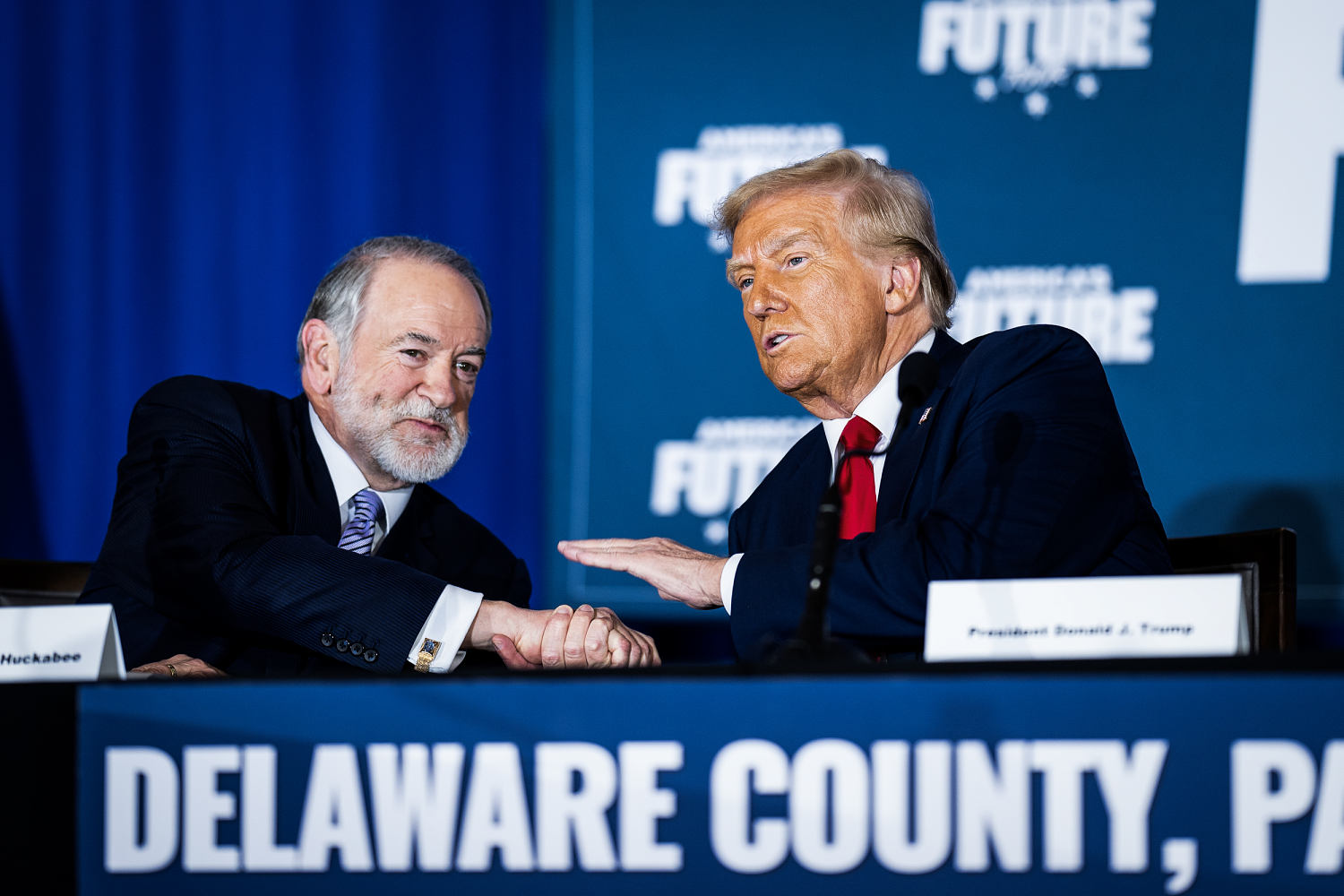
President-elect Donald Trump has picked former Arkansas Gov. Mike Huckabee to be U.S. ambassador to Israel. While this doesn’t mean Huckabee will be determining the Trump administration’s official policy on Israel, Trump’s selection of a hard-line evangelical activist to the role is a signal to the world that he’ll likely be pursuing ultra-hawkish policy when it comes to his approach to the country.
Huckabee has already made it clear that he sees allies in the most radically conservative members of Israeli Prime Minister Benjamin Netanyahu’s administration, and that he has a similar disregard for international law. “I’ve never been willing to use the term West Bank. There is no such thing. I speak of Judea and Samaria. I tell people there is no occupation,” Huckabee said in a recent interview with the right-wing Israeli media outlet Arutz Sheva. “It is a land that is occupied by the people who have had a rightful deed to the place for 3,500 years, since the time of Abraham.” He added, “I want to use terms that live from time immemorial, and those are terms like ‘promised land.’”
This does not bode well for anyone hoping for peace between Israelis and Palestinians.
In case it wasn’t obvious, Huckabee is a right-wing Christian Zionist. That means he’s part of an ideological camp that believes that unconditionally supporting the Israeli government and aiding it in its project of territorial expansion is not just a geopolitical imperative, but also a spiritual duty. This does not bode well for anyone hoping for peace between Israelis and Palestinians, or anything resembling a just solution to the decades-long occupation and displacement of Palestinians.
As MSNBC columnist Sarah Posner has explained, for many Christian Zionists, “support for Israel is rooted in its role in the supposed end times: Jesus’ return to Earth, a bloody final battle at Armageddon, and Jesus ruling the world from the Temple Mount in Jerusalem. In this scenario, war is not something to be avoided, but something inevitable, desired by God, and celebratory.” That appetite for war means that “what happens to the Jews and Palestinians is, to put it very mildly, collateral damage,” and that “settlers’ further control of the occupied West Bank, which they call by its biblical names Judea and Samaria, is a fulfillment of God’s plan.”
That helps explain why Huckabee refuses to use the term “West Bank” and denies Israel’s occupation of the territory, in violation of international law. In fact, Huckabee’s denialism of oppression of Palestinians extends to their very existence: He opposes a two-state solution and once said, during his 2008 presidential campaign, “There’s really no such thing as a Palestinian.”
The Netanyahu administration will likely see Huckabee’s ambassadorship as a green light from the Trump administration to carry on with regional domination in the Gaza Strip, the West Bank and Lebanon. In fact, in his interview with Arutz Sheva, Huckabee appeared to align himself with Israeli politicians to the right of Israeli Prime Minister Benjamin Netanyahu. When asked about Israel’s far-right finance minister Bezalel Smotrich’s call for Israel’s annexation of territory in the West Bank, Huckabee responded, “That’s a decision for Israel to make.”
Trump selecting Huckabee suggests that the policy agenda Trump set in motion during his first term will resume without interruption. Trump broke with U.S. tradition and international norms in moving the U.S. embassy to Jerusalem and recognizing the Golan Heights as part of Israel. He has also cast doubt on his commitment to a two-state solution and encouraged Israeli settlements. It’s hard to imagine someone more congenial to this spirit of Israeli expansionism and impunity than Huckabee. Now, as Trump’s emissary, he may help turbocharge that process.
